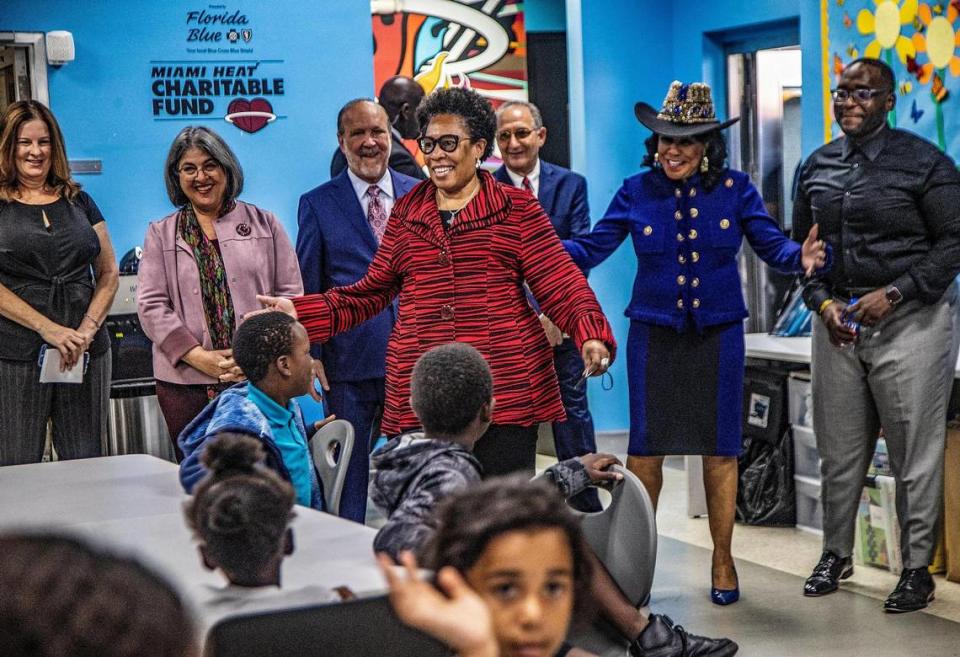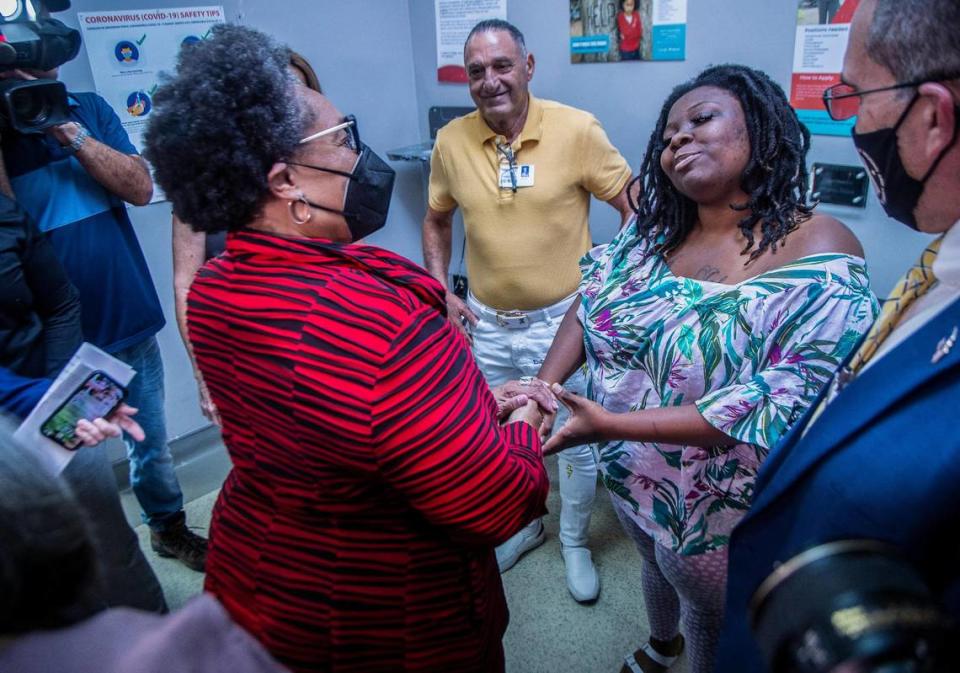Biden housing chief says Miami in housing crisis, but holds key to easing homelessness
- Oops!Something went wrong.Please try again later.
Marcia Fudge looped around the housing complex’s hallways. She stepped into a colorful room adorned with a Miami Heat mural and inspirational quotes.
A dozen children sat around a set of tables, greeting Fudge and the crowd of guests that interrupted their daily STEM activity. The young residents head to the playroom every day after school and during the summer.
Inspired by the NBA team decor, Fudge asked the kids if they play sports. Football, basketball, they answered.
Fudge, the Housing and Urban Development secretary, went on a walking tour of the Miami-Dade County Homeless Trust assistance center on Wednesday afternoon. Congresswoman Frederica Wilson, County Mayor Daniella Levine Cava and Homeless Trust chair Ron Book joined Fudge on the tour.

“I think we overlook the homelessness in this country,” she said. “In the greatest nation of the world, almost 500,000 people sleep in the streets... every single night. It is a travesty.”
The secretary’s tour came a day after her visit to Liberty Square, where she called Miami the epicenter of the housing crisis.
High rent and mortgage rates, she noted, are contributing to homelessness. Many people can’t afford a place to live, even if they have a good job.
“They can’t live in the community they serve,” Fudge said.
Fudge said she was pleased to see the work — and success — of the Homeless Trust. She even considers it a blueprint for other parts of the country.
Miami-Dade has one of the largest and most effective public-private partnerships dedicated to helping the homeless become self-sufficient. The county has also ranked second among public housing agencies, with at least 400 vouchers successfully housing clients, according to data provided by the Homeless Trust.
As of January, 970 people remain unsheltered, according to data provided by the Homeless Trust.
“It is no longer about shelter first. It is about housing first,” Book said. “The only way we are going to end homelessness in our community now is broadening, widening use of housing as a tool to get people off the street.”

Two decades ago, Miami and other major urban areas, like Chicago, Los Angeles and San Francisco, had from 8,000 to 11,000 unsheltered people, Book said.
“There are 970 too many unsheltered [in Miami], but there are 71,000 in LA,” he said.
The difference in outcome is because Miami-Dade County has had a plan, leadership and money, Book added. The Homeless Trust focuses resources where needed, specifically in vouchers, to keep people housed and get them out of shelters.
“It’s not a coincidence that under Republican and Democratic administrations, six times we have been made the HUD best practice model,” Book said. It’s the breadth and the depth of what we do.”

